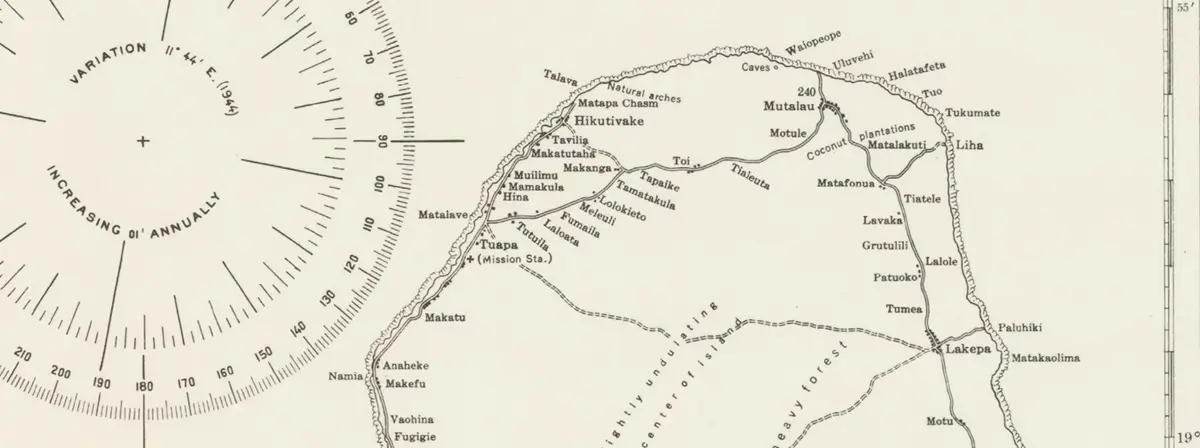Fakaalofa lahi atu!
If you know me, you’ll probably know I come from Pākehā and Niuean lineage. The greeting above is “hello” in Vagahau Niue (the Niuean language) – I’m not fluent (yet)… but I’m learning.
My dad was from the village of Tuapa in Niue and this small island nation is very close to my heart. As such, I feel deeply connected to the impact of climate change on Pacific Island nations and the growing threat of displaced peoples and climate change refugees. Seeing the impact of climate change in the Pacific, and beyond, motivates me to play my part. It’s a key driver behind one of Two Sparrows’ top four values: To be eco-led – leaning into clean and green with all our design + code decisions.
Looking at the challenge of climate change, this blog argues why being eco-led matters more than ever.
Climate change: Four things we know
- Climate change is real.
- If the Internet was a country, it would be the fourth largest polluter.
- Climate anxiety or eco-anxiety is real and growing – especially among our young people.
- We can make a difference and have a responsibility to do so.
Climate change is real – Tuvalu’s story
Did you know Tuvalu is the world’s first country to become fully digitised?
In a matter of decades, rising sea levels – caused by climate change – will swallow the island nation. Because of this reality Tuvalu is migrating everything online. “Recreating its land, archiving its culture, and digitising its government” so it “can exist as a nation even after its land is no more.”
As forward-thinking as this project is, it’s a tragic wake-up call and challenge to look at our personal and business practices in light of climate change. Tuvalu has nowhere else to go but online, or they risk losing their connection to their land, culture, and self-determination forever.
But we still have a window to make a difference.
So, what can we do in the face of this overwhelming scenario?
We can make space.
In other words, other countries, including Aotearoa New Zealand, have a responsibility to free up digital “land” or resources for nations like Tuvalu, who have no choice but to go partially or completely digital.
“If the Internet was a country, it would be the 4th largest polluter.”
So much of what keeps the Internet running is hidden from us – the end-users. Even the word “cloud” suggests information happily floating around, not tied to one spot, or stored in physical assets. This way of thinking can make us complacent about the impact of our digital assets (including our website), data centres, cryptocurrency, information storage, hosting, or even spending hours on social media.
But when you consider the water and electricity used to keep data centres and telecommunication networks running – not to mention the energy used to power our devices – you start to grasp the scale of the challenge, and how the Internet needs extreme amounts of water, electricity, and land to keep going (and expanding at astronomical rates).
Used thoughtfully, the Internet can be part of the solution, as the need for paper and postage reduces, but it would be naïve of us not to see it as a climate change contributor, too.
Like we reduce, reuse, and recycle our physical resources, we need to start paying attention to our online decisions. How we use the cloud, how we store information, how much data we need, and the processes that require energy, contribute to our digital footprint.
What’s climate or eco-anxiety?
Climate or eco-anxiety is worrying about the impact of global warming on our homes, countries, and way of life. Our tamariki are especially vulnerable to climate anxiety because they often feel powerless to help.
As a mum to three boys (and mum-in-law to a daughter) I want to show the next generation we can – and should – make a difference. We can make change en masse and influence others to do better. Hope is not lost!
It starts by paying attention and being honest about the challenges ahead, not being complacent or despairing, but taking small daily actions to do better. As a business owner, I have hope that organisations can work together for good. I want to see our industry making sustainable digital decisions that become the norm, not the exception.
Change is possible. Let’s make it a reality together.
One tangible way Two Sparrows can commit to this is by making space digitally. We are committed to becoming a design agency that’s as sustainable, efficient, and environmentally friendly as possible. And we recognise this will take a lot of change, effort and intention.
We are therefore opening up all our decisions to the goal of being eco-led – from design and coding decisions, to the projects we take on (and don’t), to our processes, our choice of data servers, and how we manage and reduce physical waste and paper.
As we look at what it means to be eco-led, we will explore some of the practical solutions we use at Two Sparrows to reduce our digital footprint – and support our neighbours across the Pacific and beyond.
Want to learn more about climate change and how to be responsible digital citizens?
Read:
Hot Air: The Inside Story of the Battle Against Climate Change Denial by Peter Stott.
World Wide Waste: How digital is killing our planet – and what we can do about it by Gerry McGovern
‘Power Hungry’ by Paris Marx published in North & South magazine, April 2024 edition
Sustainable Web Design by Tom Greenwood
Subscribe to:
The Spinoff’s newsletter Future Proof on Substack.
Branch Magazine: A Just and Sustainable Internet for All
Visit:
www.sustainablewebmanifesto.com
www.tuvalu.tv
This article was written with the help of copywriter & editor, Katie Rickson.
